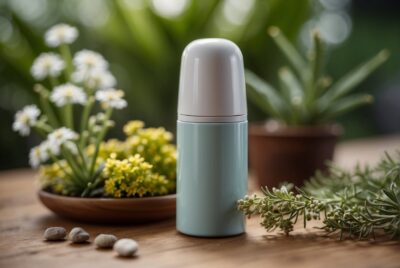Carrier Oil for Essential Oils: Choosing the Right Base
*We may earn a commission for purchases made using our links. Please see our disclosure to learn more.
Carrier Oil for Essential Oils: Your Guide to Choosing the Right Base
Carrier oil for essential oil plays an important role in the safe and effective use of essential oils. As someone who values holistic well-being, I understand that essential oils are highly concentrated plant extracts offering various aromatic and therapeutic benefits. However, due to their potent nature, applying these oils directly to the skin can cause irritation or adverse reactions. That’s where carrier oils come in – they are used to dilute essential oils, ensuring that we can enjoy the benefits of essential oils topically without discomfort.

My inclination towards natural remedies has led me to explore a variety of carrier oils, each possessing unique properties and advantages. These oils, often derived from the fatty portion of a plant such as the seeds, kernels or nuts, not only help in diluting essential oils but also carry them onto the skin. Moreover, carrier oils have their own nourishing components and can enhance the absorption of essential oils into the skin.
It is paramount to choose the right carrier oil based on the desired effect and skin type. Some popular carrier oils are coconut oil, known for its moisturizing properties, jojoba oil, which closely mimics the skin’s natural oils, and sweet almond oil, suitable for most skin types. My preference is to match the therapeutic attributes of an essential oil with the complementary properties of a carrier oil to maximize the benefits, such as using rosehip oil, which is rich in vitamin C, with skin-brightening citrus essential oils.
Understanding Carrier Oils

In exploring carrier oils, we recognize their roles in skincare, haircare, and aromatherapy, notably their ability to enhance the therapeutic benefits of essential oils. Let’s examine various types, their skin and hair benefits, and their usage in aromatherapy.
Types of Carrier Oil For Essential Oils
- Coconut Oil: High in saturated fats, it penetrates deeply into skin and hair, hydrating and protecting.
- Jojoba Oil: Closely resembles skin’s sebum, making it a balancing and moisturizing choice.
- Almond Oil: Packed with vitamins and oleic acid, ideal for nourishing and softening the skin.
- Avocado Oil: Rich in fatty acids and vitamins, especially effective for dry skin and hair health.
- Rosehip Oil: Known for its high vitamin E content, promoting skin regeneration and elasticity.
- Olive Oil: A common household oil that is also a powerful moisturizer, thanks to oleic acid.
- Argan Oil: Often used for hair care, this oil boosts shine and health with its nourishing properties.
- Fractionated Coconut Oil: A more stable and absorbent version of coconut oil, retaining its moisturizing qualities.
- Grapeseed Oil: A lightweight oil, suitable for oily skin types and does not clog pores.
- Apricot Kernel Oil: An emollient that helps to maintain moisture balance in skin and hair.
- Sweet Almond Oil: Gentle on the skin and suitable for all skin types, often used to soothe and hydrate.
Benefits for Skin and Hair
- Moisturizing: Oils like coconut, olive, and argan are exceptional in providing hydration to skin and hair.
- Nourishing: Almond and avocado oils are rich in vitamins and fatty acids, offering nourishment and promoting health.
- Soothing: For sensitive skin, jojoba and apricot kernel oils can be soothing, reducing inflammation and calming the skin.
- Balancing: Oils such as jojoba help regulate natural oil production in the scalp and skin, promoting a balanced complexion.
Carrier Oils in Aromatherapy
In aromatherapy, carrier oils are indispensable for safely applying essential oils to the body. They dilute the potent essential oils, allowing for a spreadable and enjoyable scent without irritation. Each carrier oil brings its own therapeutic aspects to the blend, complementing the essential oil’s properties. For example:
- Coconut oil can enhance the moisturizing effect of a relaxing lavender blend.
- Sweet almond oil might carry a rosemary essential oil to soothe muscles and nourish the skin.
- Jojoba oil serves as an excellent base for peppermint oil, offering a refreshing and clarifying experience.
Selecting the Right Carrier Oil

Choosing the right carrier oil for essential oils is crucial. I consider the skin type and specific conditions to enhance the therapeutic benefits while minimizing any adverse skin reactions.
Based on Skin Type
Sensitive skin: For sensitive skin, I recommend using carrier oils with anti-inflammatory properties such as jojoba oil or sweet almond oil. These oils are gentle and can help to soothe the skin.
- Jojoba Oil: Mimics the skin’s natural oils; ideal for avoiding irritations.
- Sweet Almond Oil: Rich in Vitamin E, excellent for soothing and hydrating the skin.
Dry skin or conditions like eczema and psoriasis: Rich, emollient oils like avocado oil, which have vitamins A, D, and E, are my go-to choices as they can help to moisturize and repair the skin.
- Avocado Oil: Deeply hydrating with healing properties beneficial for chronic dryness.
Acne-prone skin: I suggest non-comedogenic oils like grape seed oil for their light texture and antibacterial qualities, which do not clog pores and help prevent acne flare-ups.
- Grape Seed Oil: Astringent properties help to tighten and tone the skin, reducing the occurrence of pimples.
For Specific Conditions
Specific skin conditions often require carrier oils with additional properties:
Acne: To combat acne, I seek carrier oils with antibacterial and antimicrobial characteristics, such as black seed oil.
- Black seed oil: Known for its antibacterial and anti-inflammatory effects that can aid in acne relief.
Eczema and psoriasis: These conditions benefit from oils with high antioxidant content to reduce inflammation and assist skin healing. I prefer sunflower oil or rosehip oil for their high concentrations of antioxidants like Vitamin C and E.
- Sunflower Oil: Contains Vitamin E, an antioxidant that helps protect the skin and improve skin health.
- Rosehip Oil: It is rich in Vitamin C and A, promoting skin regeneration and improving skin barrier function.
By carefully selecting a carrier oil that aligns with my skin type and specific skin conditions, I can ensure I am providing my skin with the most beneficial support while using essential oils.
Methods of Using Carrier Oils

In my exploration of natural skin care, I’ve learned that carrier oils are indispensable for diluting essential oils and ensuring their safe application. They play a critical role in homemade skincare products, whether used for massage, applying to the body, or enhancing the efficacy of lotions and soaps.
Diluting Essential Oils
When I dilute essential oils with a carrier oil, I follow a standard dilution ratio to maintain the efficacy while ensuring safety. A common dilution ratio is:
- 1% dilution: 1 drop of essential oil per 1 teaspoon of carrier oil – ideal for children, elderly, and facial applications.
- 2-3% dilution: 2 to 3 drops of essential oil per 1 teaspoon of carrier oil – suitable for general body applications and regular adult use.
This method maximizes the benefits while minimizing any potential skin irritation.
Carrier Oils for Topical Application
For topical application, choosing the right carrier oil is as crucial as the essential oil itself. My preference is based on the area of application and the desired benefit, such as:
- Face: Jojoba oil closely mimics the skin’s natural sebum, making it an excellent choice for facial application.
- Body: For a full-body massage, I opt for sweet almond or coconut oil due to their smooth glide and hydrating properties.
The suitability of the carrier oil enhances the absorption of essential oils and offers additional skincare benefits.
Homemade Skincare Products
Incorporating essential oils into homemade skincare products requires proper dispersal to achieve consistent benefits:
- Lotions & Creams: I add a few drops of essential oil into the lotion or cream base, using roughly a 1% dilution as a starting point.
- Soaps: When making soaps, I evenly mix essential oils with a neutral carrier oil before incorporating them into the soap mixture. This ensures even distribution and maintains the integrity of the oils.
Through these methods, I can customize and extend the variety and benefits of my skincare routine, leveraging the therapeutic properties of essential oils coupled with the natural nourishing elements of carrier oils.
Safety and Precautions
When I discuss the use of carrier oils for essential oils, safety is my top priority. Essential oils are highly concentrated and can cause skin irritation or allergic reactions if not diluted properly. To mitigate these risks, I always recommend using a carrier oil to dilute essential oils before topical application.
Dilution: A general guideline is to maintain essential oil concentrations at or below 5%. For sensitive individuals or when applying to sensitive areas, even more dilution may be necessary.
Patch Test: I advise performing a patch test to determine skin sensitivity. Apply a small amount of the diluted essential oil to the inner forearm and wait for 24 hours to observe any adverse reactions.
Allergic Reactions: Always be vigilant for signs of an allergic reaction, which may include redness, itching, or swelling. If these symptoms occur, I suggest discontinuing use immediately and consulting a healthcare professional.
Therapeutic Properties: Remember that diluting essential oils with a carrier does not diminish their therapeutic properties; it simply moderates their intensity to a safe level.
Organic Carrier Oils: I prefer using organic carrier oils whenever available to avoid the potential toxins present in non-organic oils that could be absorbed by the skin.
Usage with Children: Special care should be taken when using essential oils with children. I recommend consulting a certified aromatherapist or a health professional before application, as children are more sensitive to essential oils.
Responsible use of carrier oils ensures that the therapeutic benefits of essential oils can be enjoyed safely and effectively.
Frequently Asked Questions

In my experience, the effectiveness of carrier oils can vary depending on their use with essential oils. Here, I will address some common questions that arise when selecting and using carrier oils for hair health, skin care, and essential oil dilution.
1. What are the most effective carrier oils for enhancing hair health when mixed with essential oils?
Jojoba and black seed oils are excellent choices for hair health. Jojoba oil closely mimics the scalp’s natural sebum, making it ideal for regulating oil production, while black seed oil is known for its high linoleic acid content, which may help in managing scalp conditions and promoting hair growth.
2. How can jojoba oil be used as a carrier oil in conjunction with essential oils?
Jojoba oil is a versatile carrier oil that can be directly applied to skin or hair. I tend to mix a few drops of essential oil with jojoba oil to create a soothing hair serum or a moisturizing skin care blend due to its fast absorption and non-stickiness.
3. Why is sweet almond oil commonly recommended for use with essential oils, and what benefits does it offer?
Sweet almond oil is often recommended because it is light, easily absorbed, and suitable for most skin types. I find that it provides hydration and can improve skin texture, making it a good base for essential oils aimed at skin nourishment.
4. For topical application, which carrier oils are considered the best when mixing them with essential oils for skin care?
Carrier oils like jojoba, sweet almond, and coconut oil are among the best for skin care due to their moisturizing properties and compatibility with a wide range of skin types. I personally select carrier oils based on the desired outcome, whether it be for moisturizing, anti-aging, or addressing specific skin concerns.
5. What is the appropriate dilution ratio when mixing carrier oils with essential oils?
The appropriate dilution ratio for carrier oils mixed with essential oils typically ranges from 1% to 5%, depending on the essential oil’s potency and the application. For facial skin care, I often use a 1% dilution (roughly one drop of essential oil to one teaspoon of carrier oil), while for body applications, a 2-3% dilution may be more appropriate.




